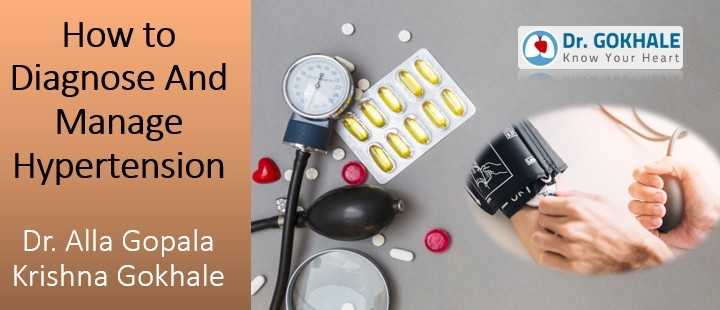Two types of blood pressure is usually recorded namely systolic and diastolic levels.
- Systolic pressure is the maximum pressure during a heartbeat, when heart sends out blood to the body
Diastolic pressure is the lowest pressure between heart beats, when the heart is being filled with blood
Let’s take a look at some of the Hypertension Factors:
- Being Obese: If a person is obese, they would need an increased rate of blood flow. As a result, the pressure inside the arteries increase, which results in hypertension
- High Sodium Diet: If the amount of sodium is high in diet, it can cause fluid retention. Hence, the arteries in the body constricts
- Less Potassium in the diet: Potassium helps in balancing the sodium in the diet. It can smooth the muscle cells in the arteries to relax, which can lower blood pressure
- Physically Inactive: Exercises can increase the blood flow and can release hormones in the body, which can ease and relax the arteries. Lack of physical activity may lead to overweight and may further lead to high blood pressure
- Excess Alcohol Consumption: Alcohol consumption can cause hypertension as it can activate the adrenergic nervous system, which increases blood flow and heart rate
- Vitamin D Deficient Diet: A diet which has less vitamin D leads to high blood pressure. Vitamin D affects an enzyme produced by the kidneys, which can affect your blood pressure. However, this lacks proper scientific evidence
- Certain Chronic Conditions: Certain chronic conditions like diabetes, sleep apnea or kidney disease can also lead to high blood pressure if care is not provided on the right time
Diagnosing Hypertension
There are normal levels for blood pressure for both systolic (less than 120 mmHg) and diastolic levels (less than 80 mmHg). Blood pressure should be recorded for several days in order to diagnose hypertension. Blood pressure is recorded ideally during two times a day, namely at morning and evening. A physical examination will be conducted following the use of stethoscope for finding irregularities in heartbeat, if any. Your doctor may also conduct tests like Electrocardiogram or Echocardiogram to confirm Hypertension.
Managing Hypertension
Let’s take a look on how to manage hypertension
- Consume low sodium diet
- Reduce and maintain weight
- Practice regular physical exercises
- Stop smoking, drinking and use of tobacco products
Follow the DASH diet – Stick to vegetables, fruits, fat free or low fat dairy products and whole grains. Avoid saturated fats and trans fats
 Ask Doctor
Ask Doctor
